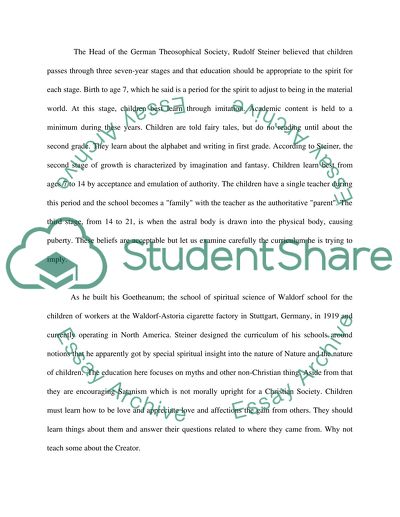Rudolf Steiners ideas for the care and education of young children Essay. Retrieved from https://studentshare.org/miscellaneous/1522558-rudolf-steiners-ideas-for-the-care-and-education-of-young-children
Rudolf Steiners Ideas for the Care and Education of Young Children Essay. https://studentshare.org/miscellaneous/1522558-rudolf-steiners-ideas-for-the-care-and-education-of-young-children.


